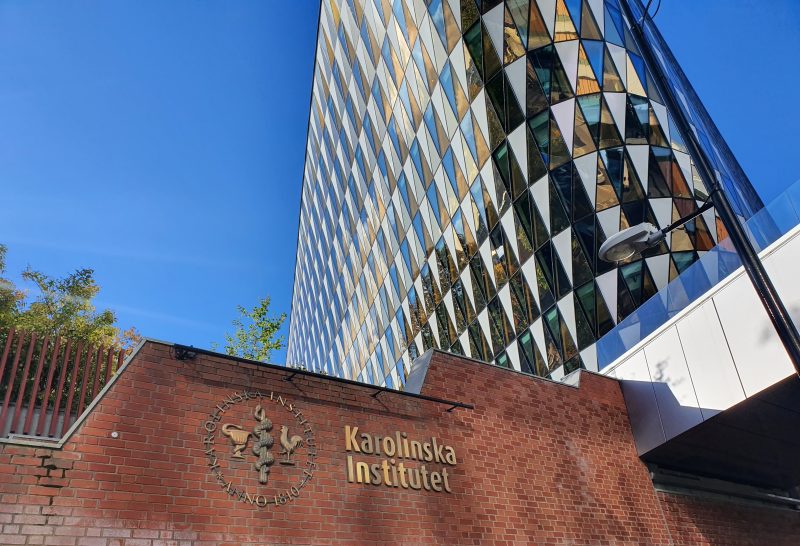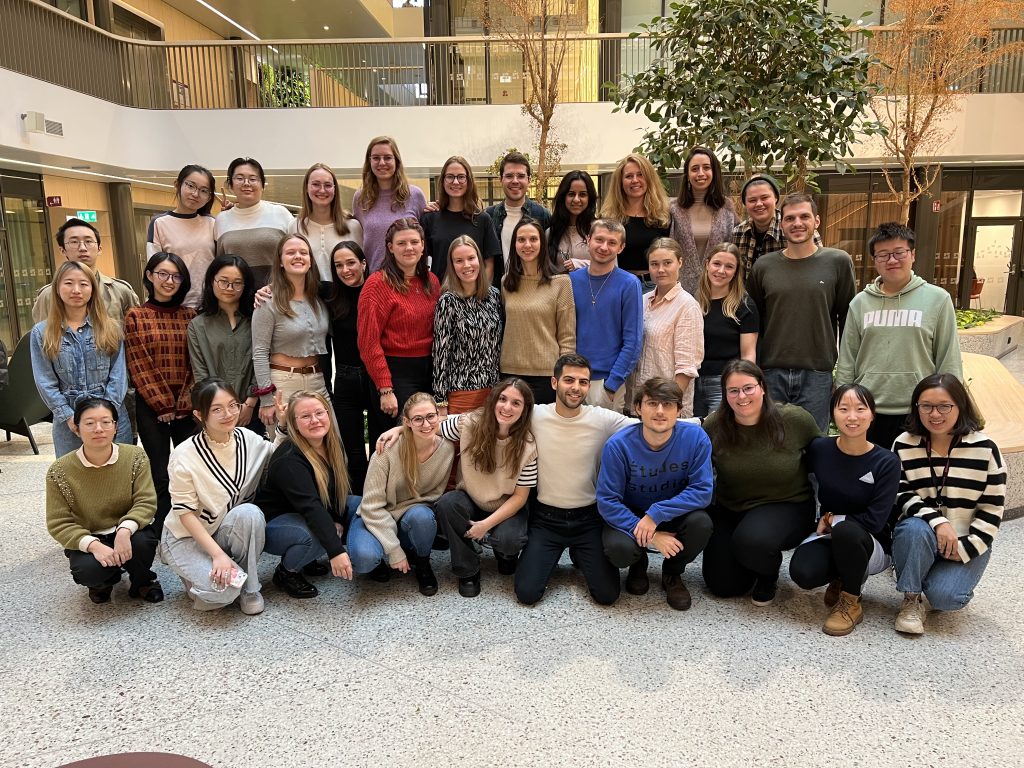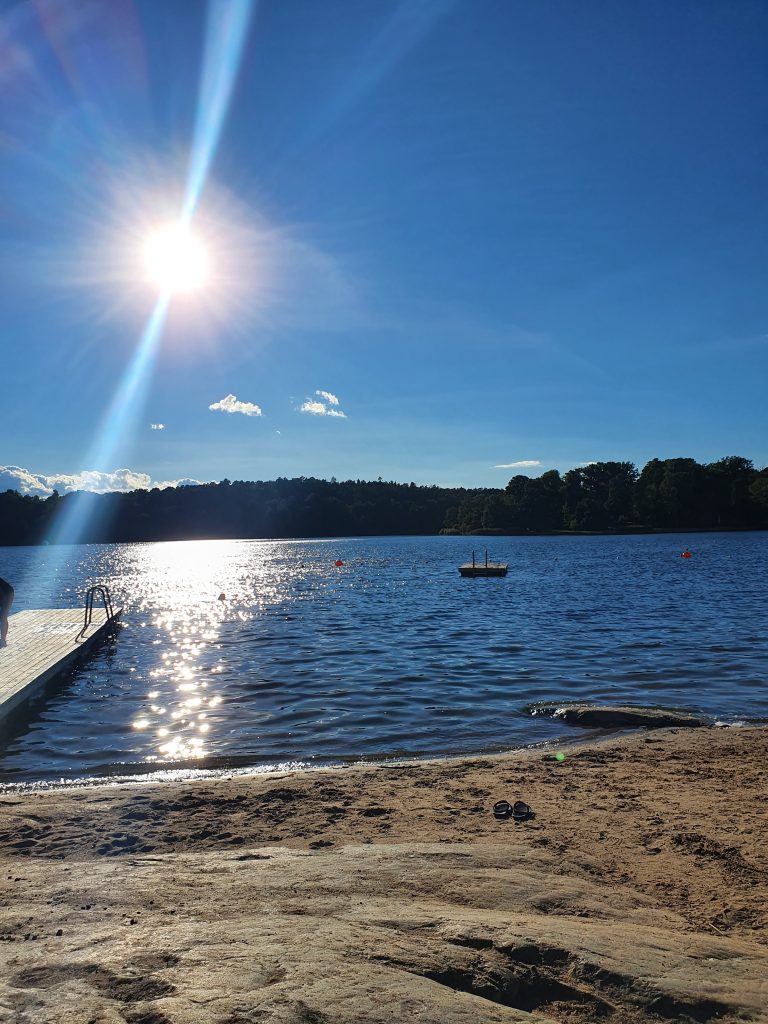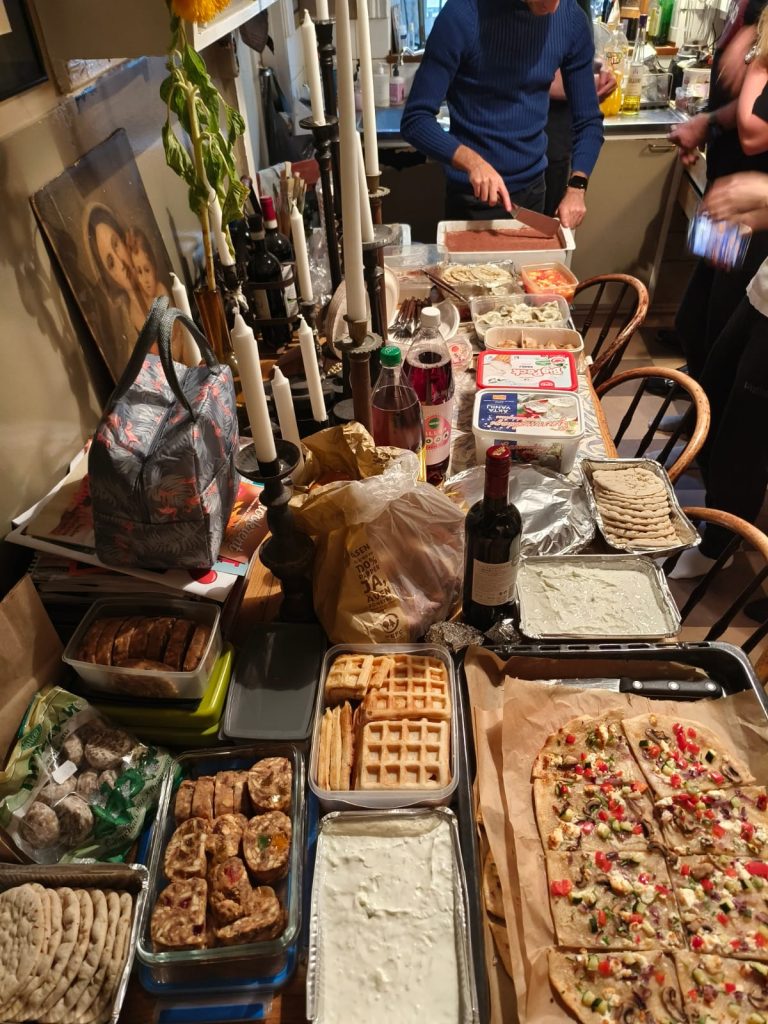
My first month studying MSc in Translational Physiology and Pharmacology
In the autumn semester of 2022, a new and exciting global master’s programme started at KI – MSc in Translational Physiology and Pharmacology (or as our class likes to call it TPP). Here’s how the first month from the introduction day to the middle of the team-based learning module has looked like from a student’s perspective.
First day with our TPP class
The beginning of a new programme is of course exciting, but it can also feel slightly scary and intimidating. That was what I felt as well on the first day of starting the brand new MSc in Translational Physiology and Pharmacology. Some people from our programme had met up during the introduction week, but Monday 29th August was the first time all 37 of us got together in one room. During the first day we learned a little more about everyone’s background, including our lecturers’. We also discussed what we are looking forward to learning and experiencing during our time here at KI and in Sweden. Fortunately, our expectations lined up quite well with the programme director’s plans, including gaining practical lab experience, learning more about drug discovery and the opportunities in the industry. The discussions were also followed up with a tour around the Solna campus and learning about the rich history of each building.

Introduction lectures to physiology and pharmacology
The first three weeks included introductory lectures on a variety of topics ranging from human anatomy, overviews of organ systems to the basics of pharmacology. The idea behind these few weeks was to ensure that everyone was on a similar level as each of us has a slightly different background and previous knowledge. It was also great to get to know the backgrounds and teaching styles of the different lecturers who we will see more later on in the course. In addition, it gave us a chance to get to know each other and acclimate to Stockholm without being overwhelmed with assignments. Some of the highlights included going swimming on a sunny day in the Brunnsviken near Hagaparken and organising an international dinner where everyone brought a traditional dish from their home region. As the weather started to get rainier, we took advantage of the common spaces at KI Solna Residence and had an indoor picnic followed by a movie night. It was great practice for when the days become darker and the colder weather truly settles in.



The first exam!
As we went through the introductory topics, at the end of the third week we had our first exam! Yes, our first official exam at KI which was based on everything we had covered so far. Even though the topics were fairly familiar to me, the pre-exam nerves did kick in a few days before the actual assessment. But as one of my classmates said, sometimes the best way to deal with pre-exam jitters is to put on a great song and have a little dance party! And that was exactly what we did before heading off to the exam. And of course, once it was done and dusted, we celebrated with another movie night!
Team-based learning begins
Following the initial introduction phase, we moved on to the core part of the course. This includes covering different organ systems (e.g. cardiovascular, respiratory, nervous system) in greater detail using a teaching method called team-based learning (TBL). The whole class was divided into teams of 6 with different backgrounds and expertise. Over the next months we will be working together to discuss study questions and apply our theoretical knowledge in a research or clinical setting. At the start of each week we have time to prepare ourselves based on lectures and independent study materials. Then we come together to complete two readiness assurance tests (we call these RATs): an individual test (iRAT) followed by doing the same test together with our teams (tRAT) when we have a chance to discuss the different aspects of the questions and explain our reasonings for each answer. Afterwards the whole class, together with the lecturers, discuss the questions to address any points of confusion or varying answers. Then at the end of the week it is time to put our newly learned knowledge to use with more practical tasks. These can include presenting articles in a journal club, analysing real experimental data from preclinical studies or creating an experimental plan to identify a novel drug. Then the next Monday, we are already tackling another organ system.
Overall, the first month of TPP has been very eventful and taught me a lot about different cultures, broadened my understanding of human physiology and pharmacology as well as challenged me to apply the knowledge to real life scenarios. It has really bonded our class and made me even more excited for the upcoming two years and beyond.
If you are interested in the Translational Physiology and Pharmacology programme, make sure to check out the programme description and how to apply.

Karolina - Translational Physiology and Pharmacology
I am Karolina and I am a digital ambassador and a blogger for the Master’s Programme in Translational Physiology and Pharmacology here at KI. I was born and raised in Estonia, but for the past five years I have lived in the UK where I studied biomedical sciences with a focus on pharmacology. Outside of school I like baking with friends as well as doing water sports. When the weather starts to get warmer, I look forward to kayaking through Stockholm's world-famous archipelago.
-
The first of many great posts about TPP! ??

2 comments